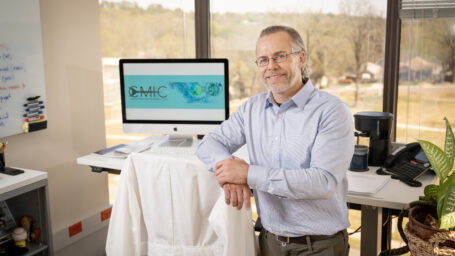Important Links
Appointments
If you think you are experiencing a medical emergency, call 9-1-1.
Doctors
Search by name, condition, location and more.
Clinics & Centers
Find your clinic or center for your appointment.
Contact Us
Contact the UAMS Winthrop P. Rockefeller Cancer Institute.
30+ Year Leukemia Survivor to Share Story at UAMS
The free event will be held at noon on Wednesday, April 17 in the Walton Auditorium on the 10th floor of the Cancer Institute. No registration is required.
Learn MoreNews & Announcements
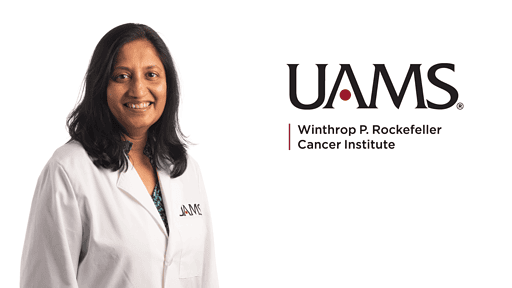
Anuradha Kunthur, M.D., Joins UAMS Winthrop P. Rockefeller Cancer Institute
Anuradha Kunthur, M.D., has joined the Division of Hematology Oncology at the University of Arkansas for Medical Sciences (UAMS) Winthrop P. Rockefeller Cancer Institute, where she treats patients with blood cancers and other hematological disorders. “We are thrilled that Dr. Kunther decided to join us after completing her fellowship at UAMS, said Ahmed Abuabdou, M.D.,…
Read more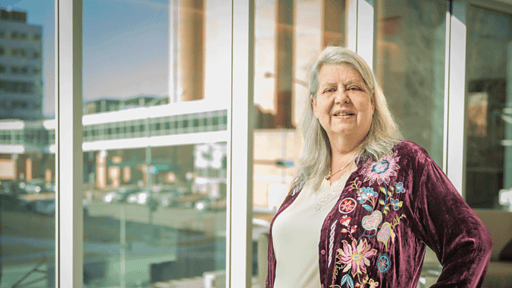
Fort Smith Retiree Heading to Disney World after Successful Proton Therapy for Brain Tumors
In November 2023, Malinda Larey, 67, of Fort Smith, Arkansas, was all set to jump on the retirement travel bandwagon when she was unexpectedly diagnosed with atypical meningioma. Meningiomas are tumors that grow from the membranes surrounding the brain and spinal cord. Patients can have a range of symptoms — from none to severe seizures,…
Read more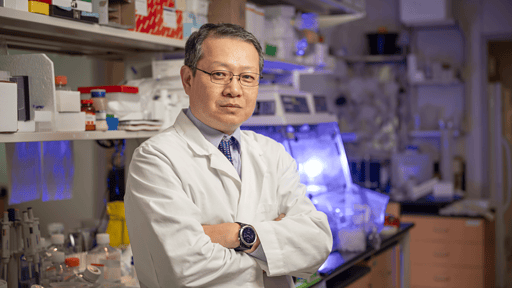
Distinguished Cancer Researcher, Yong Zhu, Ph.D., Joins UAMS Winthrop P. Rockefeller Cancer Institute Leadership
Prominent cancer epidemiologist, Yong Zhu, Ph.D., has joined the University of Arkansas for Medical Sciences (UAMS) Winthrop P. Rockefeller Cancer Institute as associate director for population science and translational science. He also holds an appointment as professor of epidemiology in the UAMS Fay W. Boozman College of Public Health. Zhu joins UAMS after serving for…
Read more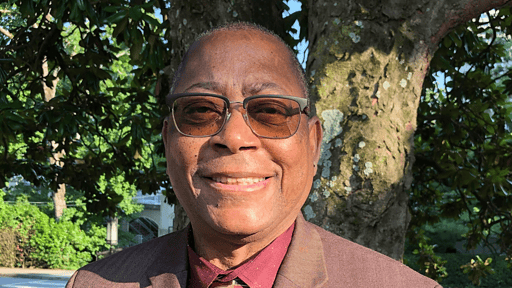
30+ Year Leukemia Survivor to Share Story at UAMS Winthrop P. Rockefeller Cancer Institute April 17
Mel Mann, a retired U.S. Army major and 32-year chronic myeloid leukemia (CML) survivor, will speak to cancer patients, caregivers and health care providers at the University of Arkansas for Medical Sciences (UAMS) Winthrop P. Rockefeller Cancer Institute grand rounds on Wednesday, April 17. The free event will be held at noon in the Walton…
Read moreWant to read more stories like these?

